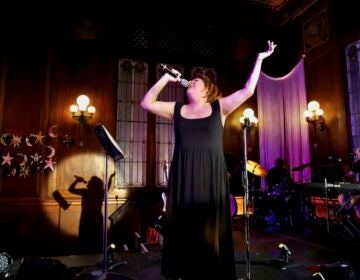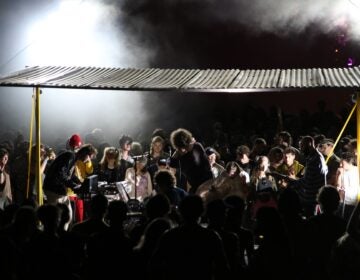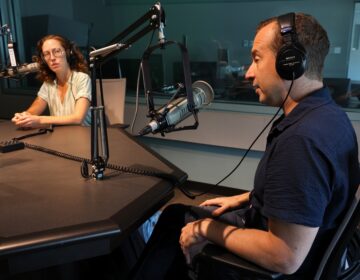Fringe Festival turns 25, spawns its own mini-festival
Cannonball is a new artist-produced festival-within-the-festival, a critical sign of growth for the Philly Fringe.
Listen 1:42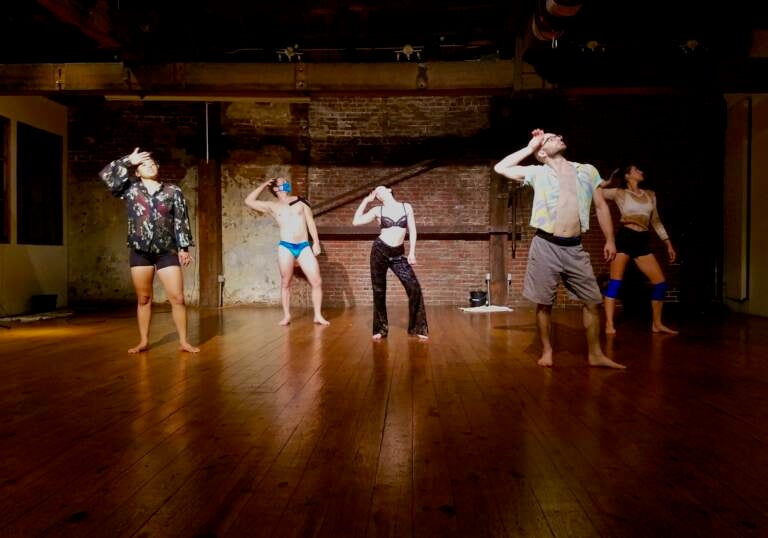
The Almanac Dance Circus Theatre, rehearse their piece for the Cannonball Festival, ''Happy Hour,'' inside the Maas Building. (Peter Crimmins/WHYY)
Nick Stuccio remembers nightlife in Philadelphia 25 years ago was abysmal. That’s one of the reasons he was able to launch the first Fringe Festival in 1997 with very little resources or experience: it was needed, by both artists and audiences.
“It was the right idea at the right time,” he said. “If we did it today: it’s a much more dense, rich community of artists, art thinkers, and audiences — a sort of competitive landscape. It would be much harder today than it was 25 years ago.”
At 25 years old, the Fringe Festival has become more adept at presenting highly complicated works and finding audiences to see them. But despite its well-established position in the Philadelphia art calendar and its permanent building on the Delaware River waterfront, Stuccio bristles at the idea of becoming “mature.”
“The kind of artists we were interested in 25 years ago has not changed at all,” said Stuccio. “The difference is we’re much better at being able to talk about that artist, being able to present that artist.”
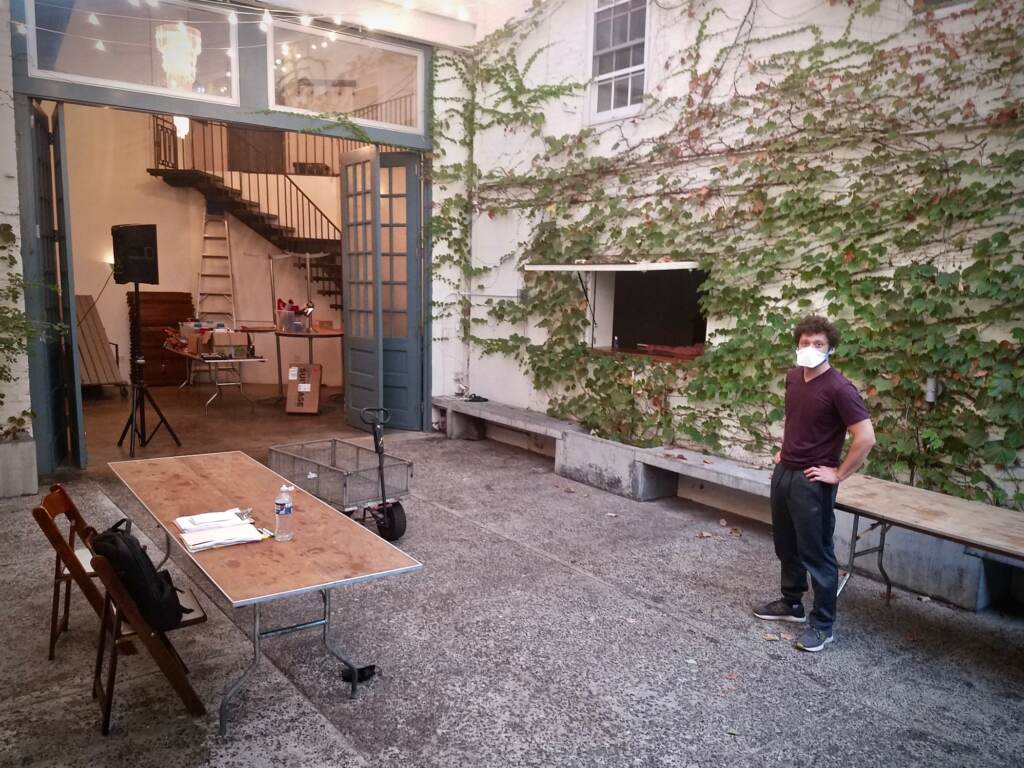
Over the course of Philly Fringe Festival’s decades of presenting alternative theater, it was inevitable that alternatives to the alternative would emerge, such as the parallel Free Fringe, which arrived in 2019 outside of the main festival, offering performances at no cost to either the audience or its registered artists.
This year a mini-festival has been created within the Fringe Festival.
The Cannonball Festival is an independently organized group of performances that will share a space and resources, operating within the Fringe. It will feature 100 performances of 28 original shows, all in the Maas building on Randolph Street in Olde Kensington.
“We describe it as a satellite festival of the Philly Fringe,” said Ben Grinberg, a founding member of Almanac Dance Circus Theatre, and a co-producer of Cannonball. “We’re offering this co-production model to artists of all disciplines: we have film, music, theater, dance, and circus. Hopefully we’re cutting costs for artists and doing something where there’s going to be a lot of energy concentrated in one spot, so we can make a splash.”
Hence the splashy name: Cannonball.
‘How to Marry a West African Muslim’
Cannonball is monopolizing the Maas building for the duration of the Fringe Festival, where invited artists share the costs of the space, the technical elements (lights and sound), and marketing. Through a partnership with Fergie’s Pub, part of the building will be a pop-up bar and restaurant in a semi-enclosed garden patio, where a late-night cabaret will be staged.
On the busiest day of Cannonball, Saturday Sept. 25, visitors could park themselves at the Maas building all day, if they wish, and catch 13 different shows as well as dinner.
Such satellite festivals within a Fringe festival have emerged in other cities, particularly at the granddaddy of Fringe in Edinburgh, Scotland. Stuccio supports such independent curation within his festival, offering them incentives like registration discounts to collective programming.
“I think the idea of Cannonball is absolutely necessary for the continued health, vitality, growth, and development of this festival,” said Stuccio. “Fast forward many years into the future, where there’s a Cannonball-style collective in Nicetown and Strawberry Mansion and Fishtown and Camden. That will make it a decisive arts festival for our country where we can tap the potential for the entirety of the creative community through extending it by other people, other producers, other curators.”
One of Cannonball’s featured playwrights, Nikki Brake-Sillá, has never before presented her work live at the Fringe Festival.
The cost of participating in the festival is relatively low: a few hundred dollars to register, and depending on the complexity of production costs, can escalate from a few hundred dollars more to many thousands.
Due to the pandemic, the Philly Fringe has waived the normal $350 registration fee this year, but cost is still a barrier for Brake-Sillá.
“I made a rule for myself a long time ago when I graduated from grad school, that I was going to stop putting my own money into projects,” she said. “If people are interested in my work, then they’re going to put their money where their mouth is. They’re going to show me that they want me there. And Fringe didn’t come knocking.”
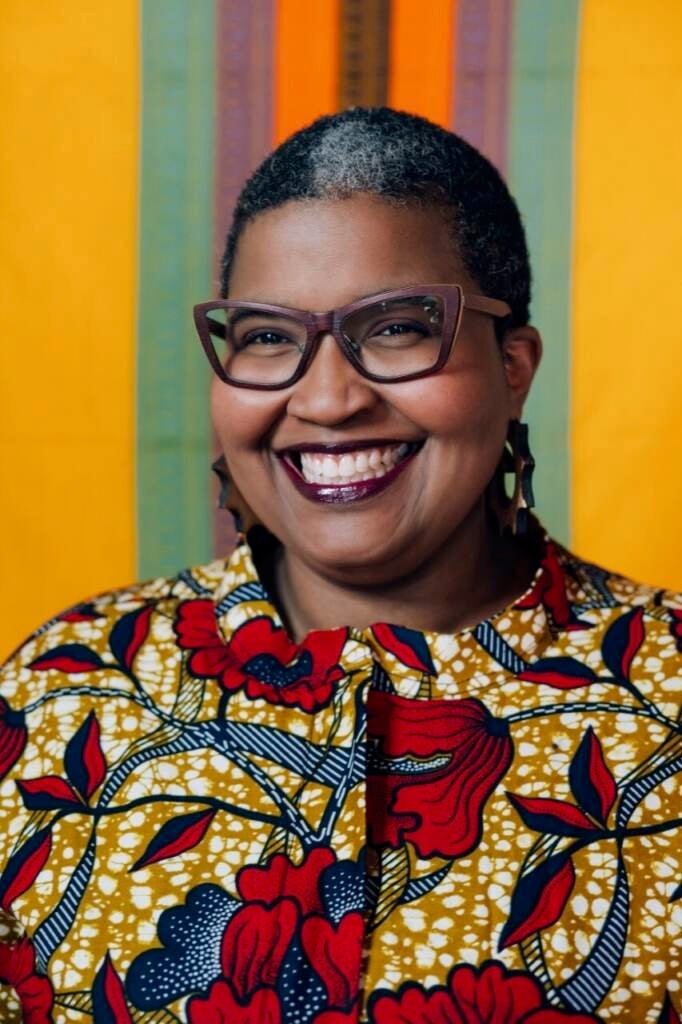
While the Fringe Festival did not come knocking, the Cannonball Festival did. Producer Nick Jonczak is presenting a package of several short, original plays in one program, called Visions. He asked Brake-Sillá if she would write a short monologue, and find an actress and director to present it. She will be paid for her work.
“That in and of itself has been huge: a producer showing up and saying, ‘These are the artists that we’re interested in, these are the people that we want to uplift in the community to make sure that their voices are heard, and here’s the money that we’re going to use to make sure that they can do that,’” said Brake-Sillá.
One of the plays Brake-Sillá wrote is a 15-minute satirical monologue, “How to Marry a West African Muslim,” based largely on her own life: she, a native of North Carolina, is married to a West African Muslim. It is inspired by the 2005 satirical essay by Binyavanga Wainaina, “How to Write About Africa.”
The monologue is a reaction to the barrage of questions people had for Brake-Sillá when they found out she married a Muslim from Guinea-Bissau.
“’Do you have to walk three steps behind? Do you have to convert? Are your daughters going to have to cover themselves?’ she said. “All of these Western notions about what Islam is, because of what we’ve seen or were exposed to with news and media. ’Are you going to have to stop drinking?’ I was like, ‘No, I’m not going to have to stop doing it. It’s fine.”
The performance of “How to Marry a West African Muslim” will be the first time Brake-Sillá will witness anything she has written performed for a live audience. She began writing plays in 2018, and in late 2019 became a founding member of a Black playwright collective Jouska PlayWorks. But before any of her work could be produced or even given a staged reading for an audience, the pandemic shifted everything online.
Zoom readings did not give her a chance to sense what the audience was feeling. That is one reason she is thrilled and grateful to be part of the Fringe this year, via the Cannonball Festival: it finally gives her a chance to be in the room with her audiences.
“I’ve been a part of Zoom theater, but it’s one-sided. You can’t take the temperature in the room, because the room is all over the world,” she said. “It will be really nice to hear what’s landing, when people are shifting in their seats, what are people laughing at. Then take note of that and know what needs to be punched up or pulled back. I’m really excited to hear it, to be breathing and existing in a live space.”
Despite the tumult of the past 18 months of the coronavirus pandemic, and the anxiety of the rise of its delta variant, this year’s Fringe Festival attracted a record number of participating artists: over 200 when normally it sees about 130.
Part of that rush of artists is due to a pent-up need to create new work. Many theater artists like Brake-Sillá depend on audiences as part of their creative process: they need to see how audiences react in real-time and in real space, and make changes accordingly. Without someone to see a work, the work cannot develop.
“The Fringe is critical to that process of getting in front of people,” said Stuccio. “It’s not the same virtually. There’s a big delay, it just does not work. We’ll get a lot of awesome, raw stuff, and a lot of artists who are keenly going to be dialed in. This is a really important step to getting back on track.”
All shows in the Fringe Festival require all participants — actors, crew, and audiences — to be fully vaccinated. Proof of a negative COVID test will not suffice. In addition, audiences will be asked to wear masks during the entirety of the performance.

Get daily updates from WHYY News!
WHYY is your source for fact-based, in-depth journalism and information. As a nonprofit organization, we rely on financial support from readers like you. Please give today.





